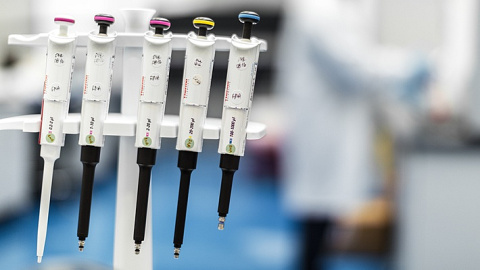- By Jackie Connor
- Posted March 30, 2017
Dr. Rachid Karam Discusses Variant Classification at 2017 ACMG Annual Meeting
Actionable medical results are often a key component in deciding a patient’s medical management and specialized treatment options. However, some genetic test results can have unclear implications or Variants of Unknown Significance (VUS), which can often affect a clinician’s medical management plans for their patients. During the 2017 ACMG…
- By Jackie Connor
- Posted March 2, 2017
RNA Labs—How they Impact the Medical World
Ribonucleic Acid, otherwise known as RNA, is the messenger that carries instructions for controlling the synthesis of proteins from Deoxyribonucleic Acid (DNA). The central dogma of molecular biology states that “DNA makes RNA makes protein." However, for the proteins, which are the final product, to work properly, the RNA needs to be “edited,"…

